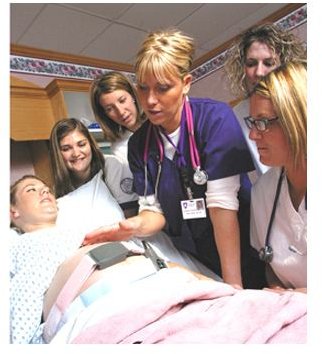Answers To: How Much More Will I Make with a 4 Year Degree in Nursing?
Overview
A four-year nursing degree is usually a BSN (Bachelor of Science in nursing) and can be obtained from a four-year college or university. Graduates of BSN programs are immediately ready to take the NCLEX-RN, the registered nurse licensing examination. A two-year nursing degree on the other hand is usually an Associate’s degree and could be an ASN (associate of science in nursing), ADN (associates degree in nursing) or AAS (associates in applied science). Nursing graduates with a 2-year degree are also eligible to take the RN licensing examination and receive the RN designation if successful.
Salary Projections
At the entry-level, having a two-year or four-year nursing degree does not make much of a difference in terms of your starting salary. According to Payscale.com, the national average salary for nurses with a BSN ranges from $22.85 to $31.77 per hour. While for nurses with an associates degree it is as follows: ASN ($21.87 to $30.11), ADN ($21.95 to $30.17) and AAS ($21.96 to $30.23).
So you may ask, “How much more will I make with a 4-year degree in nursing?” Well the answer is starting out, not much more, but later in your nursing career, the type of degree you have will make a difference. With a BSN, you are more likely to be promoted all other things being equal than someone with an Associate’s degree. A BSN also qualifies you to pursue higher nursing degrees such as a masters or a Ph.D. if you so desire, or other nursing specialties that require you to have at least a BSN. These higher degrees and specialties in turn will command higher salaries down the road in your career.
If earning money right away is not an issue for you and your college education is not costing you too much, it makes sense to pursue a BSN now and get it over and done with. However if you need to spend as little time in school as possible and start working, then pursuing an Associate’s degree makes sense. You can always work on getting a Bachelor’s while you are working. You may also be able to get your employer to pay for it, if your employer has tuition assistance programs as part of its compensation plan.
In addition, if you already have a Bachelor’s degree in another field and are choosing nursing as a second career, there are several accelerated programs to choose from that will waive some of the nursing degree requirements based on your previous education.
Other Important Income Considerations
While staring salary is important, it is imperative that you not lose sight of other factors that may affect your compensation over the long run and how much you ultimately earn over your working life. For example it is more advantageous to take a job with a slightly lower hourly rate if the company has a matching 401(k) plan because the matched portion is free money you get toward retirement. Furthermore, a company with a retirement plan whether or not it is matched is better than one that does not have a retirement plan.
You may also want to consider other benefits that come with the job, the cost of living of the area and the kind of lifestyle you want. Finally, remember that there is a national shortage of nurses so in spite of a bad economy, it is still possible to find good nursing jobs and possibly on your own terms.
Image Credit: Weber State University: https://www.weber.edu/nursing/
